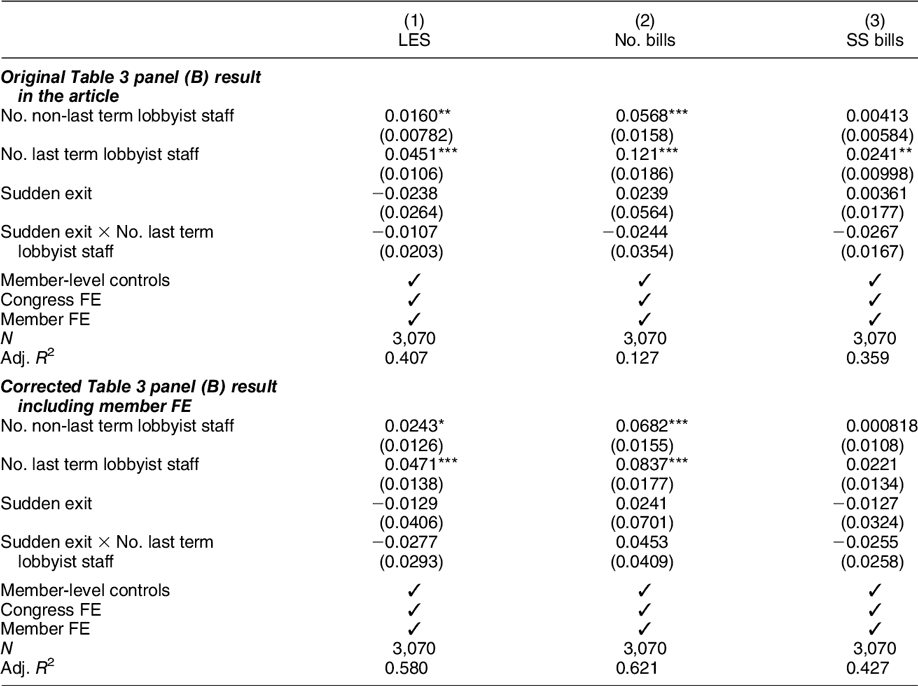doi: https://doi.org/10.1017/S0003055419000510; volume 114, issue 1, February 2020, 270–84; first published online by Cambridge University Press, 20 September 2019.
The above paper (Shepherd and You Reference Shepherd and You2020) was published with two errors.
First, in attempting to provide a substantive interpretation of the primary coefficient in one of our analyses, we made a mistake on page 227. Given that our outcome variables are log-transformed, a one standard deviation increase in the number of future lobbyist staff (0.34) is associated with 1.8% increase in a member’s Legislative Effectiveness Score (LES) (exp(log(1.7) + 0.0317 × 0.34) − 1.7 = 0.0184), if we evaluate the effect from Table 2 at the mean level of LES. We mistakenly overstated the effect size by around 11 times. However, the corrected effect size is still substantially meaningful. Based on the coefficients of Table A.3 from the Online Appendix, which present the full regression results of Table 2, the effect of having an additional revolving-door staffer is about ![]() ${1 \over 9}{\rm{th}}$ of the effect of switching to majority party status on LES. This error does not affect the other analyses presented in the article and the corrected results do not change the main argument of the paper.
${1 \over 9}{\rm{th}}$ of the effect of switching to majority party status on LES. This error does not affect the other analyses presented in the article and the corrected results do not change the main argument of the paper.
Second, we reported results in Panel (B) of Table 3 without including member fixed effects. In the table below, we present the original Panel B in Table 3 (on the top) and the results with member-fixed effects included (on the bottom). Given that we already added a rich-set of member-level characteristics in our regression, adding member-FE does not significantly change the results. However, now the Adjusted R 2 in Panel B corresponds to the results in Panel A in Table 3.
Future Lobbyists as Staff: Their Last Terms and Sudden Exits (House)

Notes: The unit of observation is member × congress. Standard errors are clustered at member-level and reported in the parentheses.
* p < 0.10, ** p < 0.05, *** p < 0.01.
We regret both of these errors.




Comments
No Comments have been published for this article.